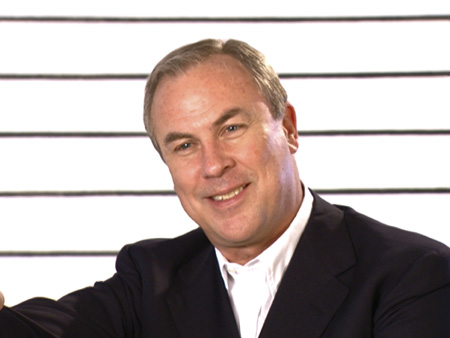

Reviews of Recent Independent, Foreign, & Documentary Films in Theaters and DVD/Home Video
Written & Directed by: Katharina Otto-Bernstein. Director of Photography: Ian Saladyga. Edited by: Bernadine Colish. Music by: Miriam Cutler. Produced by: Otto-Bernstein & Penny CM Stankiewicz. Released by: New Yorker. Country of Origin: USA/Germany. 105 min. Not Rated.
For those familiar with director Robert Wilson and his work in the avant-garde
theater, or those simply curious to be introduced to his brand of performance art, Absolute Wilson will be of interest. Focusing
on Wilsonís expansive contributions to the world of experimental drama, opera, and dance, the film provides ample documentation
and opinion as to why Wilson is considered to be a leader in changing the landscape and vocabulary of performance.
As in the case with most bio-documentaries, this dense film links his personal history with his professional life. Along with
accounts of Wilson at work, Katharina Otto-Bernstein uses archival footage, production and rehearsal clips, as well as interviews
with the candid Wilson, Susan Sontag, Philip Glass, David Byrne, William S. Burroughs, Jessye Norman, and Tom Waits, among others. Starting with his parochial upbringing in the socially conservative town of Waco, Texas, and ending with his swirl of world-spanning meetings and productions, Wilsonís story is a road long traveled. Albeit an interesting journey, the film darts about and starts to feel a bit like a flight with too many connecting stops. By the same token, the connections are successfully made. His boyhood learning disabilities, his estrangement from his father, and his homosexuality all contributed to his feelings of being on the fringe. In turn, his affinity to the 1960s counter-cultural revolution, his synergy with the experimental artistic community of New York City, his involvement in teaching the disabled, and his artistic collaborations with the handicapped are shown as natural progressions of his personal and artistic voice and a melding of his life and art.
Although his personal growth and artistic achievements are apparent, the film also relates how his successes have been met with
personal and professional struggles. In addition to a suicide attempt that landed him in a psychiatric institution,
his often authoritarian and intensely controlling personality emerges. This side of him is curiously antithetical to his initial
pursuit Ė the creation of the company, The Byrd Hoffman School of Byrds, meant to invite and nurture diverse artistic voices of all
cultures, races, and disciplines. As to his work, he has encountered great resistance and rejection, more often in the U.S. than
abroad. Such difficulties touch on the obstacles facing artists, especially those outside the mainstream, as they strive to become
publicly and commercially accepted. It also underscores the challenges in producing art in the U.S., a country without a substantive national subsidy for art.
Max Rennix, actor & writer based in New York
|